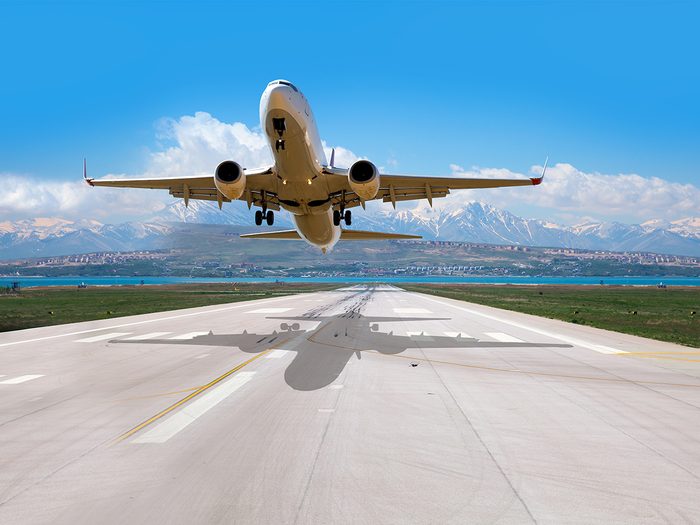
Accept How You’re Feeling
The first step in overcoming a fear of flying is to recognize the fear. “Don’t fight it,” advises Dr. Ian Shulman, a psychologist at SHIFT cognitive therapy in Oakville, Ontario. “Allow yourself to feel it. If you can go into a situation that scares you and say to yourself, ‘It’s okay to be scared even though I’m not comfortable,’—that doesn’t trip off your body’s internal alarm system as much and it’s easier to cope.” By telling yourself that “yes this is happening, and I’ll go with it,” your brain tends to calm down—and as a result, the uncomfortable tightness in your throat, shallow breathing, and upset stomach will loosen their grip on you.

Take a Fear of Flying Course
Before you consider booking a trip, sign up for a course that can help unravel your fear of flying. Shulman’s SHIFT program in Oakville is one of many across the country that offers seminars on how to bust your flying phobia. “These programs are very useful because you get to see first hand that there are lots of other people with similar experiences and that helps you feel like you’re not alone and what you’re going through isn’t strange,” says Shulman. Fear of flying programs look at how and why fear develops, offer calming techniques and insight into how a plane works so that nervous flyers can gain an understanding of what they’re experiencing when they hear strange noises or feel turbulence. No program in your area? Shulman has held consultations in the past over Skype and FaceTime, or you can sign up to SOAR, an online course based in Connecticut that uses videos and remote individual counselling sessions.
Don’t miss this expert advice on how to embrace your fears.
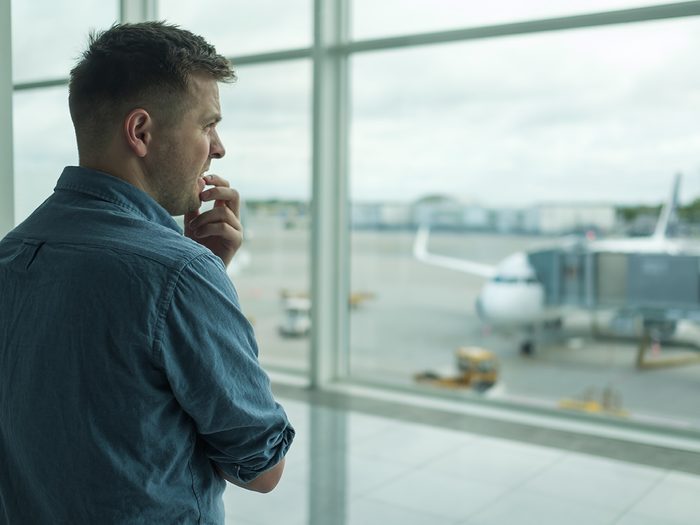
Avoid Anxious Thinking Patterns
“People prone to anxiety tend to make two thinking errors. The first is that they exaggerate the dangerousness of the situation they are in, and the second is that they minimize their ability to cope with that danger,” says Shulman. “They’ll be thinking of the future and what could happen, and start to sweat, shake and panic.” If you’re feeling anxious on the plane, it helps to realize that you’re actually safe and not really in any danger. “The symptoms are just your body’s way of reacting to your thoughts of what might happen,” says Shulman. Realizing that you’re okay and more than able to cope will help to squash anxious thought patterns.
Check out these confidence lessons you can learn at any age.
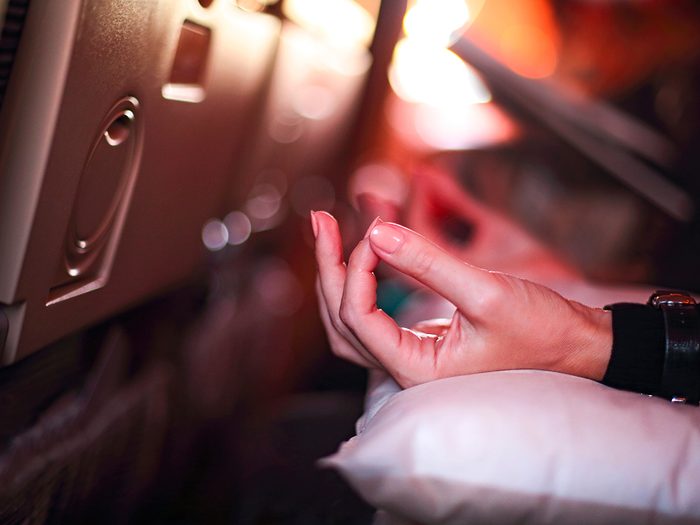
Adopt a Calming Technique That Works for You
There’s no right or wrong way to find inner calm when you’re feeling anxious. “Figure out what’s going to work for you and go with that,” says Shulman. Some anxious individuals find that repeating positive affirmations in their head helps them to alleviate their fear of flying, while others prefer to visualize that they’re somewhere relaxing such as on a beach. Cultivating a “mindful awareness” of your breathing can also help. “Focus on your breath at the tips of your nostrils, or as your belly rises and falls,” says Shulman. “As you focus on the breath, you’ll notice that your mind wanders. If you can practice this skill, it trains the brain to have a little more control over itself, and brings it back to where everything is calm.”
Here’s what can happen when you start meditating every day.
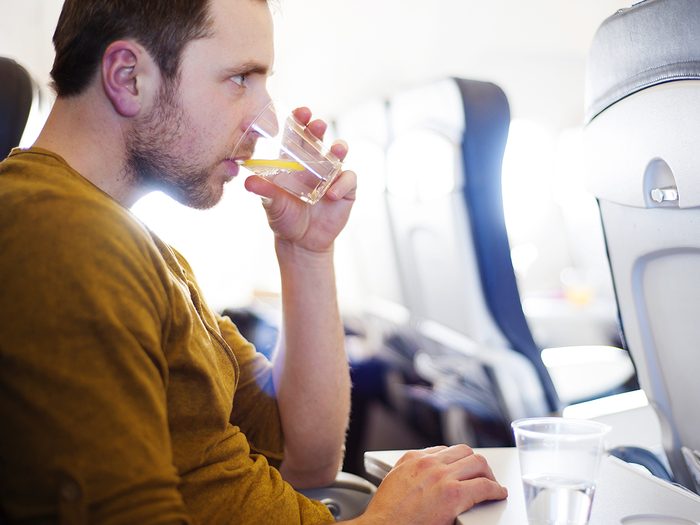
Don’t Rely on Alcohol or Medications
While booze or prescription drugs can temporarily take the edge off a scary situation, they come with major drawbacks. Passing out for the duration of a long flight could make you a candidate for deep vein thrombosis (DVT)—the formation of blood clots in the legs. Studies from the Stanford University School of Medicine in California have also found that in-flight users of anti-anxiety medications could be making their situation worse. “The research showed medicated fliers had higher heart and breathing rates than unmedicated fliers on the same flight who were in a state of panic,” says Tom Bunn, a Connecticut-based airline captain, licenced therapist, and founder of SOAR. “The researchers believe this hyperarousal with medication traumatizes the central nervous system, making it more sensitive to flying,” says Bunn.
Find out the travel mistakes everyone should make at least once.
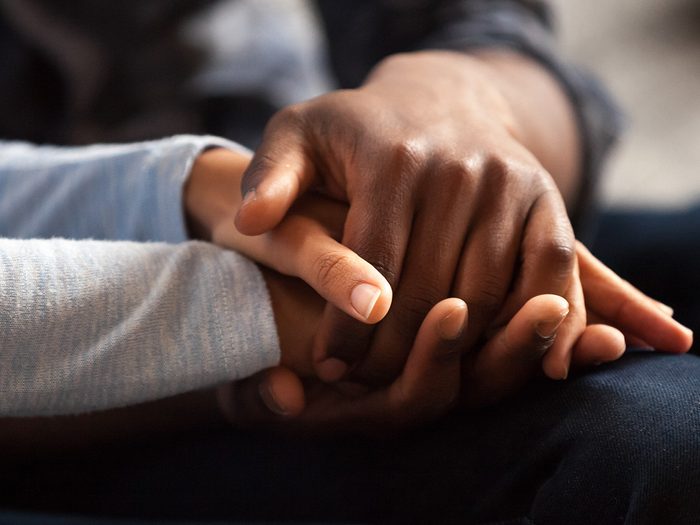
Become Acquainted With Oxytocin
Here’s a substance that is more beneficial in-flight than alcohol, or prescription drugs. “Oxytocin is a chemical that your brain produces when you’re feeling relaxed and safe,” says Shulman. When a loved one holds your hand, or someone you care about is with you, your brain releases the calming effects of oxytocin. So grab a good friend or loved one as your travel buddy, and reap of the soothing benefits of your brain’s “cuddle hormone.”
Next, find out how to beat jet lag after your next long-haul flight.